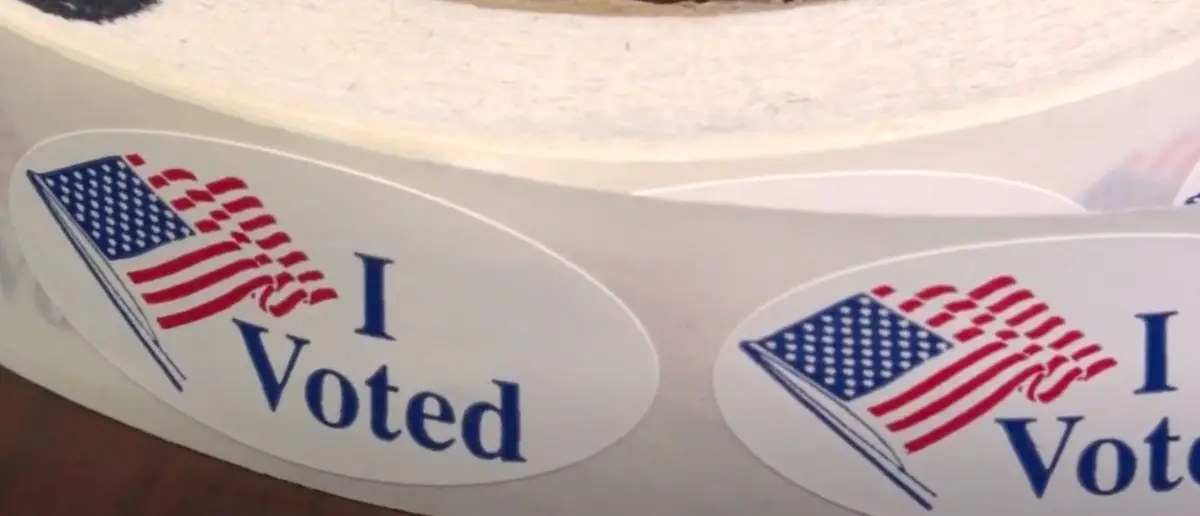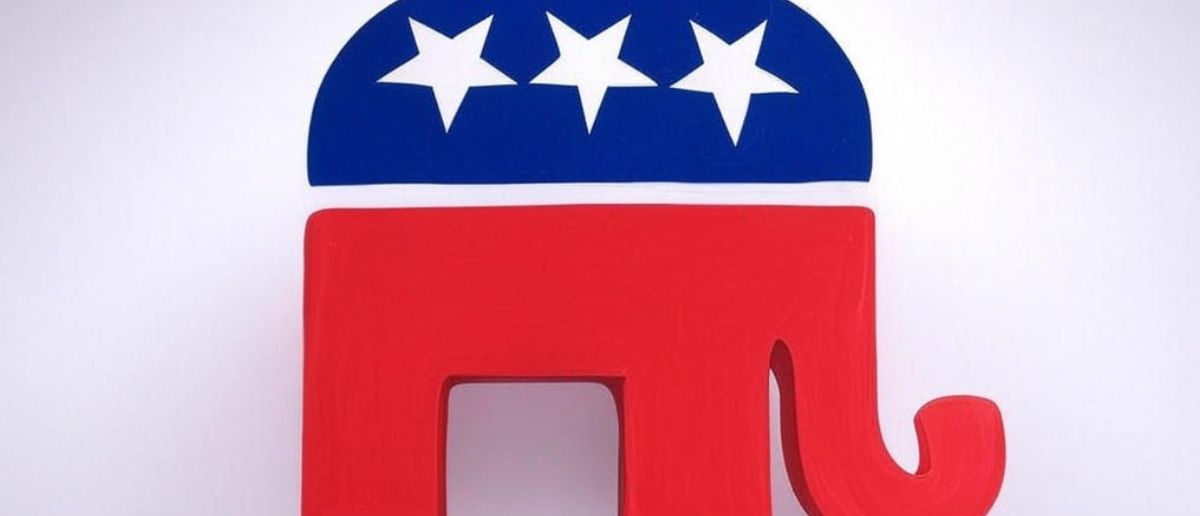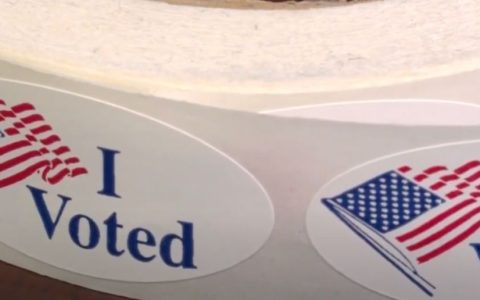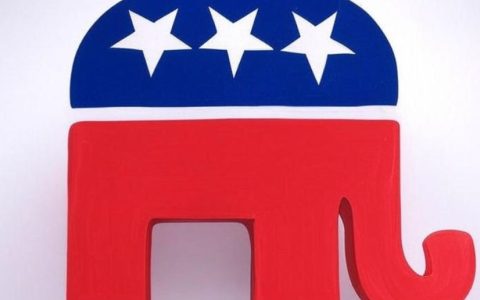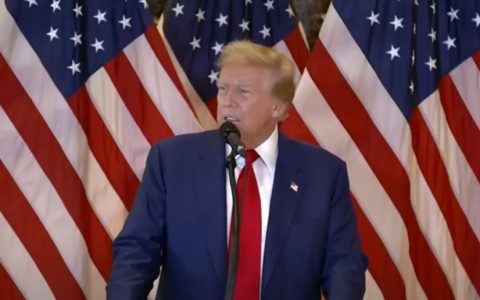
The Democrats have made a huge mistake. They really ticked off Trump this time.
Because Trump is preparing a lawsuit to send the Democrats into oblivion.
The past three elections have produced results that were entirely different than what the “credible” and “reputable” mainstream media outlets were saying would happen. In 2016, they said Hillary Clinton had the election in the bag and on election night they said she had a 99% of winning. We all know what happened that night.
In 2020, they predicted Joe Biden would win in a landslide, saying that he was up by nearly 10 points in the national polls and surveys. What actually happened? Donald Trump made it a super close race, and many still believe there were some shenanigans from that election. Especially after the way the next one went.
This time around in 2024, the polls were all over the place. Generally, though, the pollsters said that it was going to be a tight race and that Kamala Harris was likely to carry home the blue wall once more. That didn’t remotely happen. Donald Trump carried all the swing states. Every single one of them. And he almost flipped some states that were expected to be deep blue, like Virginia.
Ahead of the election night on November 5th, a pollster who is normally reliable claimed that Kamala Harris was going to win Iowa by a fairly eye-opening margin of three points. That was a crazy prediction because Donald Trump was expected to carry that state by nearly double digits, which is exactly what ended up happening. This has Trump wondering how this was allowed to happen.
Donald Trump believes there’s nefarious behavior going on here. He thinks the pollsters are trying to sway public opinion and voters because there’s no way you’d get all three of these elections so wrong. That is, unless you were trying to get the results to say something specific.
Donald Trump Announces Lawsuit Against Suspicious Pollster
In the aftermath of Donald Trump’s victory in the 2024 election, the president-elect has promised to take legal action against the Des Moines Register and its lead pollster, Ann Selzer, over her much-criticized survey that found Vice President Kamala Harris leading Trump in Iowa. The November 2, 2024, poll conducted by Selzer’s company, Selzer & Company, showed Harris leading Trump 47% to 44%. This finding, which was widely circulated by media outlets, quickly became a symbol of the polling industry’s failure to accurately capture the political climate.
Despite polling results that showed Trump trailing in a critical swing state like Iowa, the president-elect went on to secure a resounding 14-point victory in the state, winning 56% to Harris’s 42.7%. This victory was a significant part of Trump’s broader triumph, which saw him claim all seven battleground states and become the first Republican presidential nominee to win the popular vote since 2004.
Trump’s decision to sue Selzer and the Des Moines Register stems from what he describes as an obligation to hold accountable the pollsters and media outlets that got it wrong, especially in a state that has been crucial to his success. In a press conference, he expressed frustration at the disparity between the poll’s prediction and his actual performance. “I’m doing this not because I want to, I’m doing this because I feel I have an obligation to,” Trump stated. “I’m gonna be bringing a lawsuit against the people in Iowa, their newspaper, who had a very, very good pollster who got me right all the time, and just before the election said I was going to lose by 3 or 4 points.”
Trump went on to explain the significant impact the poll had, noting that as the election neared, Selzer’s predictions of a narrow Trump victory (revised down from a more significant margin) drew national attention. “It became the biggest story all over the world because I was gonna win Iowa by 20 points because the farmers love me and I love the farmers,” Trump said. “And it was interesting the way she did it, Selzer brought it down two weeks before, said I was only gonna win by 4. That was a big story.”
Trump’s frustration is understandable, as the discrepancy between the poll’s findings and his actual performance is not just a matter of a few percentage points but a glaring miscalculation that calls into question the methods employed by Selzer and other pollsters who consistently underestimated Trump’s appeal to Iowa voters. The state, a traditional battleground, had been expected to fall in the vice president’s favor based on polling data that simply didn’t align with the ground realities of the 2024 election.
In the wake of the election, Selzer attempted to defend her methodology in an op-ed published on November 7. Acknowledging the “big miss” in the poll, she pointed out that the same techniques had been used in both 2016 and 2020 when Trump had a strong lead in Iowa. “In response to a critique that I ‘manipulated’ the data, or had been paid (by some anonymous source, presumably on the Democratic side), or that I was exercising psyops or some sort of voter suppression: I told more than one news outlet that the findings from this last poll could actually energize and activate Republican voters who thought they would likely coast to victory. Maybe that’s what happened,” Selzer wrote.
While Selzer’s attempt to explain the poll’s failure as a means to motivate Republican voters is interesting, it doesn’t quite hold water. The notion that a poll showing Harris with a lead could somehow boost Republican turnout by making them think they were in danger of losing, especially in a state where Trump’s popularity was high, is speculative at best. Furthermore, the suggestion that the poll might have been part of some kind of deliberate “psyops” or voter suppression campaign is a thinly veiled deflection that fails to address the core issue: the poll simply wasn’t accurate.
This incident is part of a broader pattern of polling failures that have dogged the industry since Trump’s first run for president in 2016. Despite overwhelming evidence that Trump had a strong base of support in rural areas and among working-class voters, many pollsters — including Selzer — failed to capture this segment of the electorate accurately. In both 2016 and 2020, Trump defied polling expectations by winning key states that were deemed “unwinnable” for Republicans, largely because pollsters consistently underestimated the depth of his appeal among these groups.
It’s worth noting that Selzer’s company has a well-regarded reputation in Iowa for accuracy, and her past polls have been more reliable than most. However, this failure to correctly predict Trump’s performance in 2024 raises serious questions about the methodologies used in contemporary political polling. Are the questions being asked capturing the true scope of voter sentiment? Are pollsters taking into account the possibility that certain voter groups may be unwilling to reveal their true intentions to pollsters, especially in a politically polarized climate? Or is there an inherent bias in the way questions are framed or in the sampling methods used?
In this case, Selzer’s poll missed not only the specific outcomes of Iowa but also the broader political landscape. Trump’s success in Iowa was fueled by his strong ties to farmers and working-class voters, who were reportedly more energized than the pollsters had anticipated. The suggestion that these voters were somehow “lulled into complacency” by a misleading poll does little to explain why so many Iowans rallied to Trump’s side in the final stretch of the campaign.
Trump’s lawsuit against the Des Moines Register and Ann Selzer is not just about the specifics of this poll, but about holding accountable an industry that has repeatedly misjudged his chances in crucial swing states. For years, the same pollsters who have predicted his demise have failed to grasp the deep and complex forces driving his political rise. While Selzer may be an experienced and skilled pollster, her failure in this instance should be a wake-up call to the polling industry as a whole: the old models and assumptions simply don’t capture the full picture of the American electorate in this era of political volatility and populist discontent.
The polling industry, once seen as a cornerstone of political analysis, has lost much of its credibility in recent years. As more and more people question the reliability of these polls, especially in light of Trump’s repeated ability to outperform them, it’s clear that the industry must adapt. It’s not enough to simply tweak methodology; a fundamental reevaluation of polling practices is long overdue. Until then, legal challenges like Trump’s may serve as a necessary check on an industry that has too often gotten it wrong.
Stay tuned to the DC Daily Journal.

